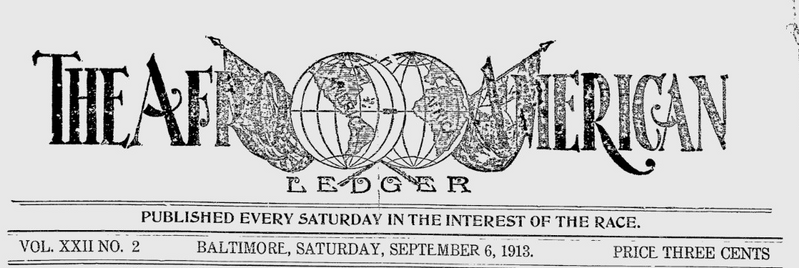African American Perspectives on the Fourth of July
Using African American historical newspaper to trace the meanings of Independence Day
“The sunlight that brought life and healing to you, has brought stripes and death to me. This Fourth [of] July is yours, not mine. You may rejoice, I must mourn.” So said Frederick Douglass to a gathering of white abolitionists in New York on July 5, 1852. Seventy-six years and one day after the signing of the Declaration of Independence, Douglass found little to celebrate.[2] Millions of African Americans remained enchained, while the Fugitive Slave Law meant that Blacks in the North faced the terrifying possibility of being returned to bondage in the South. We know now that the Civil War was but nine years away, but in these dark days emancipation hardly seemed imminent. “What,” Douglass continued, “to the American slave, is your 4th of July? I answer: a day that reveals to him, more than all other days in the year, the gross injustice and cruelty to which he is the constant victim.” White Americans’ patriotic speeches seemed to mock African Americans; rousing hymns to America’s greatness echoed false in African Americans’ ears.
In the decades since his speech, the fortunes of African Americans have ebbed and flowed, and so too have attitudes toward the Fourth of July. During Reconstruction, for example, freedpeople in Charleston claimed the holiday, finally able to consider themselves citizens and true inheritors of the creed that all men are created equal.[3] As whites regained control over city and state governments, African Americans faced legal restrictions on their public celebrations, and reasons to feel patriotic were fewer. Insofar as African Americans (and other marginalized groups) continue to be excluded from fully enjoying the freedoms for which elite white men on July 4, 1776, staked their lives, Douglass’s words retain their power.
In the Fall 2018 Virginia Tech Department of History course, “Introduction to History,” we wondered what the Fourth of July meant for different African Americans, in different parts of the country, over the course of many decades. Did they embrace it? Ignore it? Condemn white celebration as (in Douglass’s words) “a sham”? Students searched seven historical African American newspapers, covering a range of dates and geographical regions, to explore the different meanings attached to the Fourth of July. This website is the result of their research.
Using databases from the Virginia Tech University Libraries , students searched the following papers, selected for geographical and chronological range:
Arkansas State Press (1941-1959)
Baltimore Afro-American (1893-1988)
Chicago Defender (1921-1968)
San Francisco Elevator (1865-1874)
Savannah Tribune (1876-1922)
Washington Bee (1883-1922)
Wichita Negro Star (1920-1952)
Students transcribed over 400 articles, analyzing them to uncover themes and changes over time, and identified two articles per paper (four for the Defender) that they found particularly revealing. Each newspaper has its own page in this website that provides that analysis. There are three ways to explore the articles. First, each newspaper’s page has a chronological listing of each transcribed article. Second, we tagged each article with one or more keywords relevant to the content and thematic elements. Using the ‘tag’ search function, users can pull up all articles that touch on specific themes. Third, users seeking specific placenames or persons (cities or politicians, for example) that were not tagged can use the search box at the top of the page.
The articles collected here reveal a fascinating history. Some African Americans treated the Fourth as might have white Americans: a day free from their jobs, a time for relaxation (see the tag ‘picnic’) and watching baseball (‘sports’). Newspapers offered advice for what to cook (‘recipes’) and how to have a ‘safe and sane’ holiday (‘safety’) - then, as now, firecrackers were dangerous (‘fireworks/firecrackers’; ‘deaths/injuries’). Yet the nature of celebrations were always political. For example, early parades often included Black military units (‘military displays’) that illustrated Black patriotism, power, and fighting prowess. Reference to these displays disappear from the newspapers, as they presumably did from public spaces, with the spread of Jim Crow.
Most fascinating were the many editorials, letters to the editor, and reports of speeches that explicitly wrestled with the meaning of the Fourth for African Americans. Articles from the Reconstruction era reflect the optimism of that all-too-brief period when true and full inclusion as citizens seemed to have been realized. During the world wars, readers were encouraged to stand together against the enemy (‘war effort’). More often, writers - angry, bitter, hopeful - reflected on the poor state of Black America. They railed against whites who spoke of freedom and democracy while binding fellow Americans in the chains of lynch law and segregation (‘hypocrisy’). They pointed to the many African Americans who had fought and died for their country, a country that nonetheless turned its back on them (‘military service’; ‘Crispus Attucks’). They wondered when whites would embrace them as fellow Americans, as brothers and sisters who were also the inheritors of the great promise made that Fourth of July, that all were created equal (‘living up to ideals’).
These articles provide a window into one of the most confounding questions African Americans have confronted: how to be Black and American. W.E.B. DuBois in 1903 wrote that “One ever feels his twoness,—an American, a Negro; two souls, two thoughts, two unreconciled strivings; two warring ideals in one dark body, whose dogged strength alone keeps it from being torn asunder.” In the articles collected here, we are witness to those warring ideals.
We hope that users will find the articles as intriguing as we did.
 [1]
[1]
